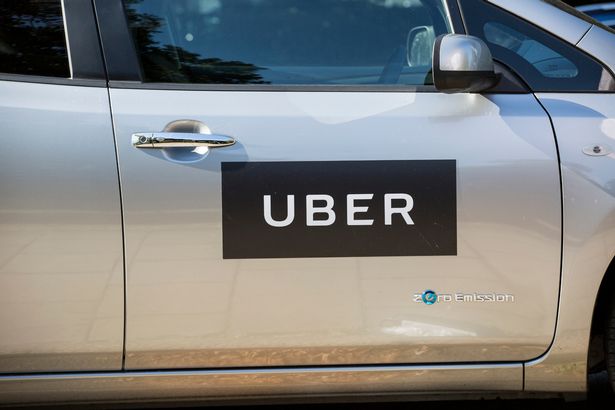Uber is in negotiations with investors, including the SoftBank Vision Fund, to secure an investment as large as $1 billion for its autonomous vehicles unit. The deal would value the business at between $5 billion and $10 billion, according to a Tuesday report from The Wall Street Journal. Uber declined to comment. The news comes… Continue reading Uber said to be raising $1B at a $10B valuation for its self-driving car unit
Tag: Uber
Drivezy, India’s vehicle sharing startup, is raising $100M+ at a $400M valuation, eyes US expansion
Drivezy — the startup out of India that wants to turn private car usage on its head through a car-sharing network where people lend their cars and two-wheeled vehicles but also have options to use vehicles from a fleet managed by Drivezy — said it is raising more money as it gears up for the… Continue reading Drivezy, India’s vehicle sharing startup, is raising $100M+ at a $400M valuation, eyes US expansion
Uber’s self-driving car unit was burning $20 million a month
Uber thought it would have 75,000 autonomous vehicles on the roads this year and be operating driverless taxi services in 13 cities by 2022, according to court documents unsealed last week. To reach those ambitious goals, the ride-sharing company, which hopes to go public later this year, was spending $20 million a month on developing… Continue reading Uber’s self-driving car unit was burning $20 million a month
Uber agrees to pay drivers $20 million to settle independent contractor lawsuit
At a time when the gig economy is under heavy scrutiny around its practices of classifying workers as 1099 independent contractors, IPO-bound Uber has officially settled a six-year-long case regarding this exact topic. Today, Uber agreed to pay $20 million to settle the class-action lawsuit, brought forth by Douglas O’Connor and Thomas Colopy way back… Continue reading Uber agrees to pay drivers $20 million to settle independent contractor lawsuit
Uber to pay $20 million to settle long-running legal battle with drivers
SAN FRANCISCO, March 12 (Reuters) – Uber Technologies Inc has agreed to pay $20 million to settle a lawsuit brought by drivers nearly six years ago, according to court filings, resolving one of its many legal battles with drivers ahead of a hotly anticipated initial public offering this year. Drivers for the ride-hailing company argued… Continue reading Uber to pay $20 million to settle long-running legal battle with drivers
Report: Google’s Waymo seeks outside investment and a sky-high valuation
Alphabet’s self-driving vehicle subsidiary Waymo may raise outside capital for the first time at a valuation “at least several times” that of Cruise, the General Motors-owned autonomous vehicle business worth nearly $15 billion, according to a report published by The Information on Monday. We’ve reached out to our sources to confirm. Waymo didn’t immediately respond… Continue reading Report: Google’s Waymo seeks outside investment and a sky-high valuation
Uber to Pay $2.6M to Settle Dutch Taxi Violations
The settlement also requires the person responsible for the launch of UberPop in Holland perform 90 hours of community service. Photo via Uber. Uber has agreed to pay the Dutch government 2.3 million euros ($2.6 million) to settle charges that the ride-hailing group violated transportation laws from 2014-2015, Tech Crunch reports. Between July 2014 and… Continue reading Uber to Pay $2.6M to Settle Dutch Taxi Violations
Former Merseyside Uber driver lifts lid on dodgy driver tactics and how they affect your journeys – Liverpool Echo
A former Merseyside Uber driver has lifted the lid on the sneaky tactics used by drivers that could be affecting your journeys. The driver – who also worked as an adviser for the app firm until recently – says there are issues with the mobile app that some drivers are exploiting – and that he… Continue reading Former Merseyside Uber driver lifts lid on dodgy driver tactics and how they affect your journeys – Liverpool Echo
Lyft lays off up to 50 in bikes and scooters as it gears up for another wave of launches
As Lyft continues to prepare for its IPO, the on-demand transportation startup is trimming staff to cut costs ahead of another wave of expansion. TechCrunch has learned and confirmed that Lyft has laid off around 50 staff in its bike and scooter division, mainly people who had joined the company when it acquired the electric… Continue reading Lyft lays off up to 50 in bikes and scooters as it gears up for another wave of launches
Uber pays $2.6M to settle historical charges it violated Dutch taxi laws
Another fine for Uber’s historical playbook: The ride-hailing giant has agreed to pay around $2.6 million (€2.3M) to settle charges in the Netherlands related to violations of local taxi law, dating back to when it was operating a peer-to-peer ride-hailing service in contravention of local transport laws. Uber offered its UberPop service in the Netherlands… Continue reading Uber pays $2.6M to settle historical charges it violated Dutch taxi laws

